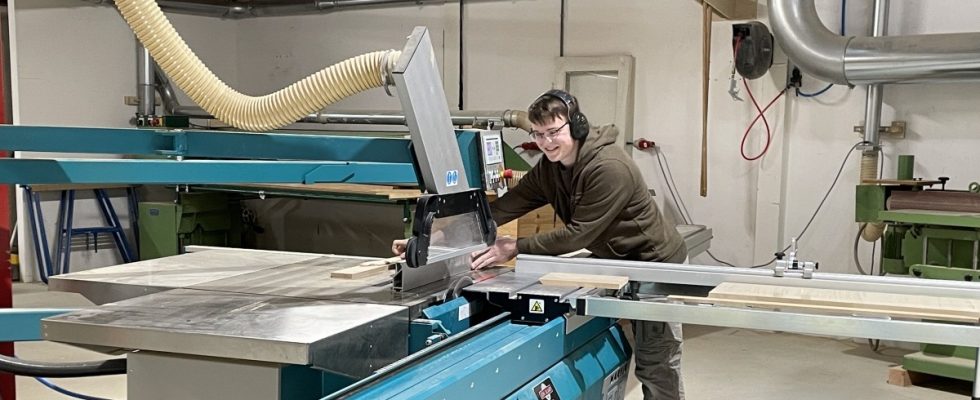When Johannes Reischl thinks about what he particularly remembers from his stay abroad, the view comes to mind. An assignment took him and his fellow carpenters to one of Rotterdam’s tallest houses: with more than 50 floors, he says, but even from the 26th the view over the city was “very impressive.” In general, Reischl sounds on the phone as if working in the Netherlands had left an impression on him. In his craft, the more experience the better – and that also includes seeing how others tackle things and solve challenges.
Gain experience, broaden your horizons: stays in other countries are completely normal during your studies. That’s why thousands of young people move from Bavarian to foreign universities every semester. But this happens relatively rarely in vocational training. Chambers and guilds now place great importance on the topic of international experience – also because they are trying to get more people interested in training and to present it as an equivalent alternative to studying. It fits in well that you can’t just travel as a student. At least in theory.
Seen this way, Schreiner Reischl would be an exception. He says that, as far as he knows, he was the only one in his year at the vocational school who went abroad for some time. He worked in Rotterdam for four months, installing kitchens. An interesting change for Reischl, from his father’s business in Lenting near Ingolstadt he was particularly familiar with doors, windows, corner benches and the like. And: “Different style, different technique,” he says. While in Bavaria people often build in a rustic style, the kitchen design in Rotterdam is more modern.
Reischl used Erasmus Plus for his trip abroad. This EU exchange program is primarily used by students, but it is also open to trainees and vocational students. In simple terms, the program pays a subsidy for travel and accommodation costs as well as for the organization. Consultants like Kathrin Budick from the Chamber of Crafts for Munich and Upper Bavaria take care of the mediation between interested parties and companies. As part of Erasmus Plus, they are counting 24 so-called mobilities for January to August this year: For example, a carpenter is currently in Japan and a baker is in Dubai, says Budick. Four electronics apprentices will soon travel to Graz together. Such group mobilities are also possible. These often only last a few weeks, but are easier to combine with everyday training in Bavaria.
Sometimes the boss doesn’t play along
It is difficult to quantify how many craftsmen and women across Bavaria take advantage of such offers: There are various scholarships with several partner organizations, each with its own quota. Sometimes young journeymen also seek exchange opportunities privately or move to a branch abroad if their company has one there. Compared to studying, however, going abroad is rare. Because in the skilled trades, the timetable is consistent, with working hours in the company, lessons in the vocational school and the units in the inter-company apprenticeship training. The Erasmus program, for example, allows you to complete your stay abroad up to a year after completion. Many journeymen are simply happy to have completed their apprenticeship. Sometimes the boss doesn’t participate either – and refuses to give approval. You don’t like to let a specialist go, even if it’s not for long. Of course, you’re unlikely to win the competition that crafts and the academic world feel they’re in.
Journeyman Reischl was also freshly trained when he went to Rotterdam: so he didn’t have to worry about going to vocational school, he says. Besides, he’s only 19 years old, “I still have a lot of time.” But after Reischl enjoyed it so much abroad, he is already planning his next stay. The destination, if everything goes well: Austria. “I’m confident that this will work.”

